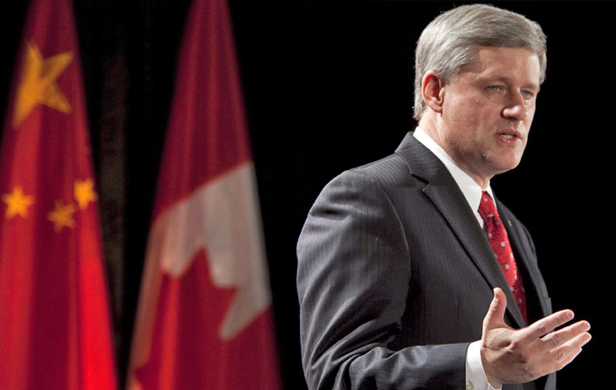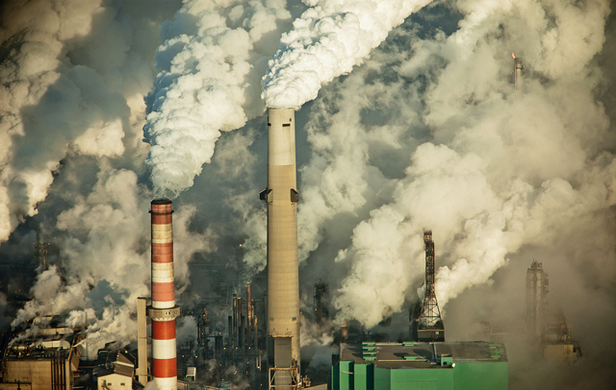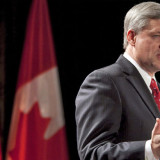
Ask yourself this: why, if Canada has the third largest proven oil reserves in the world, is our country in such massive debt?
Why do post-secondary education prices continue to soar for our youth?
Why is our health care system continually going on life support?
Why does Canada have some of the highest child poverty rates amongst the so-called developed nations?
[quote]If Canada has the third largest proven oil reserves in the world, why is our country in such massive debt?[/quote]
After all, as our government will tell you, we are the Saudi Arabia of the North.
Right?
Canada leaking oil profits
While the tar sands do create much-needed jobs for some, for the most part Canadians get nothing for handing over our oil reserves to foreign oil companies to ship overseas. Most countries ask oil companies for a large percentage of their profits in exchange for access to the country’s oil.

For instance, in Norway, they ask oil companies for about 70% of their profits. That might sound high, but the oil sector in Norway is a booming success and a major driver of the economy.
In Canada, our country does not collect any royalties. Alberta collects a pittance – about 12%.
Instead of money, the outlook for Canadians and oil is not wealth, it is the long-term consequences of pollution, lakes of toxic sludge, foul air and polluted waterways. We’ll be dealing with those issues long after the likes of Petro-China have moved on.
The longterm outlook for Norway is very different from ours. Despite having only the 22nd largest proven oil reserves, Norway is on track to have stowed away more than $1 trillion for their people and future generations. Note: that is a “t”rillon, not a “b”illion. As the Business Insider said just today, “Norway has more money than it knows what to do with.”
Canada a Petro-State?
Why has it come to this you ask? Why is Canada so oil-rich, but so poor?
I would propose that our politicians are to blame. And Stephen Harper is the latest in a long parade of politicians who rely on the deep pockets of the oil industry to fund their political campaigns. If a politician was to propose higher royalties for oil and gas companies, they would see campaign money dry up from not only the oil companies, but the companies behind them, like the banks and large investment firms.
However, if a leader was to emerge and demand that we make the tar sands work for Canadians and not PetroChina, Exxon Mobil, Royal Dutch Shell and British Petroleum, that person could reap the support of millions of Canadians who agree with this injustice.
If we had a leader that stood up for Canadians, instead of oil companies, we too could have more money than we know what to do with and could start to repair the damage wrought on us by politicians addicted to oil.
The Common Sense Canadian is proud to introduce Kevin Grandia as a new contributor!
[signoff1]


The reason Canada is so oil rich yet so monetarily poor comes back to a key concept of ‘peak oil’. What’s never talked about is that “largest reserves” doesn’t translate to “largest production”. When the government says we have oil for “hundreds of years” – they’re being serious – it will take them that long to extract all of those reserves at the measly 1.5mbd we currently do. Even a rise to 3mbd which peak oil activists figure is Canada’s maximum possible output doesn’t compare to Saudi’s 10mbd of easy to access and high EROEI oil reserves. Canadian oil sands have an EROEI of about 3:1 to 5:1 meaning it takes roughly 1 barrel of oil to produce 3 barrels of oil leaving only 2 for “profit”. Out of this profit comes escalating costs for infrastructure and the production process.
Alberta’s most profitable period from these monstrosities was from about 2003 – 2007. Look at what the price of oil did during that time: it had risen exponentially to the highest oil price the world has ever seen in the shortest period of time the world had ever seen and alberta essentially decided that this is “normal”. However, now the oil price is not rising and is in a period known to peak oil activists as “the bumpy plateau” where it neither rises nor falls dramatically but rather stays relatively high and somewhat stable. This stability however isn’t good for Alberta and the reality is that the “window of profit” now requires an oil price between 80 and 100. Under 80 and the projects can’t afford to run, and over 100 and consumers start to cut down on oil usage.
The long and short of it is, the price of oil doesn’t matter, what matters is that we only get 2 barrels of oil for every 1 barrel we consume in that process and this ratio scales all the way up at ay price.
This isn’t to say the government has been diligent in ensuring the people get a proper proportion of the wealth generated, they haven’t, and instead of investing in infrastructure (IE: the twinning of highway 63 which should have occurred 10 years ago) they knew they’d need they spent it on Olympic Trains and rebranding and other junk instead. but this is a symptom of the problem, not the problem itself. Why would the government and industry not simply fight bad publicity about their environmental record by solving the record rather than spend countless millions on P.R. – the only answer is that the touted solutions themselves are far more expensive than the P.R.
This also explains why the alberta government has separated the budget into “infrastructure” and “operational”, because the future infrastructure costs outweigh the returns and will continue to outweigh the returns and the Alberta government already knows it and wants to fool Albertans into believing their oil industry can bring a “balanced budget”. It can’t as the government has been informed of many times: http://canadiantrends.blogspot.ca/2012/11/oilsands-development-at-risk-as-costs.html
Several more posts I’ve done on the lie that is oilsands prosperity:
http://canadiantrends.blogspot.ca/2012/11/oilsands-prosperity-is-lie.html
http://canadiantrends.blogspot.ca/2012/06/80-barrel-prepare-yourself-for-next.html
A 3:1 EROEI ratio will NEVER EVER in a plateau oil price world deliver the “profit” Alberta was seeing prior to 2007, period.
If the Bank of Canada Act were re-implemented, our gov’t would create our legal tender rather than borrow it from the RBC and others at full commercial rate… this is the original sin.
Excellent observation, however I have to ask…Are we a petro-state or a country deeply infected with “Dutch Disease”?
I am curious how you would feel about a post I wrote a few months back regarding the overall place of Alberta in the Canada-Oil Company Tango.
The way things are currently progressing, it appears we as a country have become structured to simply tend to the needs of our American brothers and also to the Chinese. In my post, I suggested we allow the Chinese ownership over Alberta as a whole, sarcastically of course, but simply because of the trade agreements Harper was endorsing, that gave all the power to the Chinese investors in the long term and nothing to Canadians.
If our direction continues along the path Harper has chosen for Canadians, it does not matter who takes over in the coming years, because they will be tangled in the red tape associated with the economic pacts/contracts already put in place governing who our oil is sold to, what price and the quality of the oil in question.
Instead of investing in infrastructure and creating more areas of development within Canada, by development I refer to refinery capacity and ability, because as of now the majority of our export is crude oil, which apparently sells less than the refined product the Americans, etc are selling back to us.
Interesting resolution put forward for upcoming Union of BC Municipalities AGM:
B134 MANAGEMENT OF NATURAL RESOURCES Peace River RD
WHEREAS Northeast BC has a significant natural gas resource expected to yield far in excess of 100 years’ needs, with the resource providing an opportunity to fuel and fund the province in a debt-free and sustainable manner that will provide for enhanced physical infrastructure, health, education and social progress for several generations;
AND WHEREAS Norway, having a population and resources similar to the province of BC, has managed their resources to the extent that it is the second wealthiest country in the world:
THEREFORE BE IT RESOLVED that UBCM request that the Province of BC continue an examination of the factors that Norway employs in managing its resources for the betterment of its citizens with the goal of adopting a similar approach in BC.
ENDORSED BY THE NORTH CENTRAL LOCAL GOVERNMENT ASSOCIATION
Excellent commentary. One only has to look to Alaska for another example of how to tax oil production. The Alaska Permanent Fund which receives a portion of in-state oil revenues now has a balance of $45 billion, and sends out annual checks to every man, woman and child in Alaska who are eligible. Last years amount was $878. The oil and gas industry in Alaska is thriving.
Agreed, John. When our leaders refer to “the economy”, I’ve always asked, “whose economy?” https://commonsensecanadian.ca/VIDEO-detail/video-choosing-port-expansion-over-food-security-deltaport-damien-gillis-2/
Wow. Good point. Hadn’t thought of that comparison. Will look further into to that and do a follow up article.
I feel like there are all these simple solutions and that as a Canadians are really getting screwed.